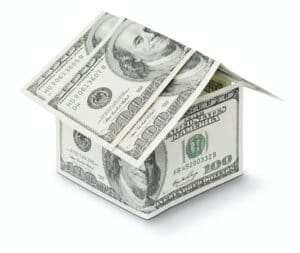Real estate trading has become one of the most popular ways to invest in real estate in Lagos and across Nigeria. In view of this, it is important to know the what, how and why of real estate trading.
Because you’re dealing with actual assets, real estate is regarded as one of the safest investments on the planet. It improves in value over time, is unaffected by inflation, and has additional advantages.
The human desire for money is insatiable, and we are continuously looking for ways to get more of it in a more convenient, faster, and risk-free manner. As a result, the majority of investors turn to real estate.
Because you’re dealing with actual assets, real estate is regarded as one of the safest investments on the planet. It improves in value over time, is unaffected by inflation, and has additional advantages.
However, the majority of people believe that real estate is just for the wealthy. Others see it as a business that takes millions of dollars to get started. While this line of thought may be valid in some elements of real estates, such as renting, commercial real estate, and short-term rentals, it is not valid in others.
Regular real estate agents who exchange properties with other local Lagos-based investors as well as those interested in selling and purchasing homes or lots online have embraced the practice.
.
Table of Contents
The WHAT of real estate trading
Real estate trading entails purchasing property with the goal of holding it for a limited amount of time before selling it for a profit. Real estate trading differs from real estate investing in the same way that investing in stocks differs from trading stocks, with the former being long-term speculation and the latter involving shorter-term speculation.
Real estate trading is also known as flipping properties, with the term “flipping” referring to the brief time a property is owned, which can be as little as a month or two, though it can be longer depending on the circumstances.

Simply explained, real estate trading is a sort of agreement that requires you to sell one property while simultaneously purchasing another from the person to whom you are selling. This is referred to as a “simultaneous-sale” strategy.
It’s critical for both property owners to be on the same page in a simultaneous-sale trade agreement: either both sell their homes or neither. Investors will rarely pay the full acquisition price of a property in cash because real estate assets are often pricey. A major percentage of the purchase price is usually financed with some type of financial instrument or debt, such as a mortgage loan secured by the property.
When people buy real estate, they usually want to utilize it for a specific reason, such as to live in it, use it for commercial purposes, or rent or lease it, but when it comes to real estate trading, the goal is to earn a profit by reselling it in the near future.
As a result, the properties that are traded aren’t used for anything other than to try to sell them as quickly as possible, and there are some opportunities to do so. Some sellers, such as those who can’t make their mortgage payments, those who need to move right away, or banks who don’t want to wait for a reasonable price for the property, don’t have the luxury of waiting.
The most significant risk associated with this form of investment is that you may not be able to cover the cost of a subsequent acquisition after selling your previous one.
For a long time, real estate trading has been vigorously advertised as a money-making venture. Although the normal individual will not be very knowledgeable about this topic, there are many persons that will gladly supply a substantial quantity of information for a charge.
The sheer lack of liquidity in real estate purchases is responsible for a lot of the dangers involved. You can’t immediately click your mouse and be out of a position like you can with securities, which is the polar opposite of a liquid asset.
One of the main objectives of real estate trading is to be able to absorb the liquidity risk of a real estate transaction if the seller is unable or unable to do so. If someone is in a rush to sell, whether for personal reasons or for financial reasons, they will often accept a lower price for the property.
You, on the other hand, want to be the person who pays the lesser price when a greater price could have been acquired if the seller had been more patient, and you want to take advantage of that extra patience.
The WHY of real estate trading
Real estate is one of the most popular and successful investments with a lot of potential for success when done correctly. Real estate trading has numerous benefits, including a consistent income stream that can lead to financial independence.

The amount of time you hang on to your property has historically reduced your chance of loss in real estate. As the market improves, so does the value of your property, and you develop equity as a result. In the stock market, the risk is constant, and there are various events beyond your control that might harm your investment.
Liquidity
Liquidity is a benefit of real estate trading. Unlike typical land banking, this requires you to wait for six, seven, or even ten years before reselling your property. When trading real estate, you can sell your property for cash at the end of the year, providing you cash to spend.
Real Estate Trading also provides a Better Return on Investment.
At the end of a year, investors can expect to make a 40% profit. Trading real estate is light years ahead of other financial investing institutions, which provide at worst a 4% ROI in the same time frame.
You may like this post;
Land Banking in Nigeria; 3 Main Factors to Consider
Re-Investment
When trading real estate, you have the option of withdrawing your interest and reinvesting the capital after 12 months for a profit of 20 to 40%.
”HANDS OFF” Investment
You will get the same benefits of land banking, which is a stress-free investment, as Trading Real Estate. You won’t have to worry about on-site work, fence, or allocation.
Trading real estate is a profitable investment that yields a 40% return in 12 months, compared to 4-12% in the same time period from other financial organizations. Trading real estate is also guaranteed and more suggested because of its relationship with real estate. You can also learn about other types of types of real estate investment via the Pwanmax Blog
Trading on the Internet
In recent years, online trading has become a real trend, as more and more investors try to make a faster profit by promoting their properties on the internet.
Check this out and learn about real estate trading platform;
Top 5 Classified Ads/Listing/High Traffic Websites to get Buyers for your Property in Nigeria
Websites that allow you to publish photographs, information, and pricing for one or more properties can swiftly spread the word that you are trying to trade throughout almost all of Nigeria, and you can quickly locate a viable offer using additional advertising tactics such as printed ads and online classified ads.
You may like this post;
20 Ultimate Ways to Promote your Real Estate Business on the Internet
The HOW of real estate trading
In any commercial Endeavour, experience is crucial, and real estate trading is no exception. However, you will have none when you first start out, making it even more crucial to understand everything you need to know about the business before you invest your money, which may include more than some marketers are prepared to tell you.
It’s very crucial to investigate your real estate market so you don’t have to make educated assumptions about how successful you’ll be in selling your home for a profit within a certain time frame.
If everything seems good, you’ll need to secure finance for both the purchase price and the costs of operating and maintaining the property during your ownership time. This includes the ability to keep things together if the sale takes longer than expected.
If things go well, you’ll be able to use the earnings from your first agreements to expand your firm. However, it’s crucial to use these gains to minimize your risk rather than continuing to leverage yourself to the point where you’re overly reliant on luck and wind up in a poor situation.
To begin your journey into the world of real estate trading, you must first decide on a few things.
-
The brand to trade with
-
Budget
-
Duration
Bottom Line
To put yourself in a position to succeed in real estate trading, you’ll need to do a lot of studies, have a generous amount of capital, a lot of planning and skill, and more than a little patience. It is not something for which you can simply pay a small fee and then claim to be an expert or magician, and caution must be maintained at all times.
Disclaimer;
The contents of this article are for informational purposes only. Always do your research before you take any real estate or business advice.
ABOUT THE AUTHOR
Pwan Max property and Business Solutions is a subsidiary of PWAN GROUP LTD, based in Lekki, Lagos Nigeria. ‘PWAN’ is an acronym for ‘ Property World Africa Network (PWAN) and we exist to make Homeownership dream a reality for all in Nigeria, Africa and beyond.
Pwan Max is a real estate marketing, investment, management and development company with a drive to provide choice classic serene, luxury homes within a workable budget for our clients.
#real estate investing for beginners
#trading real estate meaning
#what is real estate investment
Author Profile

- I am Bolaji Afolabi, a Partner at Globalclique, and a CIO @ Ibugbe and Partners - Pan African Real Estate + Technology + HR Consulting Group. Bolaji is celebrated for his expertise in seamlessly blending human capital with cutting-edge technologies, and also providing professional advisory services.
Latest entries
 REAL ESTATEApril 4, 2024Understanding Real Estate Joint Ventures: A Comprehensive Guide
REAL ESTATEApril 4, 2024Understanding Real Estate Joint Ventures: A Comprehensive Guide GROWTH HACKINGSeptember 5, 20228 Powerful Ways to Look Good and Feel Great
GROWTH HACKINGSeptember 5, 20228 Powerful Ways to Look Good and Feel Great GROWTH HACKINGSeptember 5, 2022The 3 Core Types of Income
GROWTH HACKINGSeptember 5, 2022The 3 Core Types of Income GROWTH HACKINGSeptember 5, 2022Smart P.O.M Model for Business Success
GROWTH HACKINGSeptember 5, 2022Smart P.O.M Model for Business Success








2 thoughts on “The What, How and Why of Real Estate Trading”